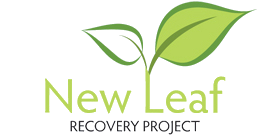From Laughter to Legislation: Unpacking the Nitrous Oxide Ban

What is Nitrous Oxide?
Nitrous oxide is a colourless gas that you can usually find sold in canisters for a variety of uses. From medical pain relief to aerating whipping cream in cafes. It is also, however, now a controlled class-C drug that could land dealers up to fourteen years in jail. For those caught with it in their possession, they could face an unlimited fine and potentially jail time of up to two years.
So, what is NO2 and what do we actually know about this substance as a recreational drug?

The Dual Nature of Nitrous Oxide: Medical vs. Recreational Use
The Medical Side
On the most basic level, Nitrous Oxide is a gas comprised of two nitrogen atoms and one oxygen atom, hence the name NO2. It has been used for a variety of different medical and dental purposes for well over a century.
It is primarily known for its anaesthetic properties alongside its mood-altering and pleasure-inducing qualities. Consequently, it earned its title of laughing gas as early as the 18th century. NO2 is often used in combination with other chemical agents to produce pain relief and help to reduce anxiety during various medical procedures.
Call Us Today: 0300 999 0330Recreational Use:
Whilst nitrous oxide has many legitimate medical uses, it has commonly been abused for recreational purposes. In recreational settings, many people inhale nitrous oxide, usually from canisters or from balloons, seeking its euphoric and dissociative effects.
Nitrous oxide comes with many different street names, NO2, Hippy Crack, Balloons, Laughing Gas, Nitro, Sweet Air, and numerous more. Though it has many street names, it is best left for a controlled medical environment.
How Does Nitrous Oxide Work:
Laughing gas works as a depressant on the body’s central nervous system. It essentially messes around with the receptors in the brain, particularly with those associated with the neurotransmitter gamma-aminobutyric acids (GABA). This interaction is what leads to the temporary alteration in perception, mood, and consciousness, or the laughing part of laughing gas.
What are the Effects of Laughing Gas
The Short-Term Effects of Nitrous Oxide:
When used recreationally, nitrous oxide can induce feelings of euphoria, dizziness, and distortions in the body’s sensory perceptions. Users may also experience mild hallucinations and a sense of detachment from their surroundings. This is why it can be particularly dangerous.
Call Us Today: 0300 999 0330The Long-Term Effects of Nitrous Oxide:
Prolonged and excessive use of nitrous oxide can lead to potential long-term effects on both physical and mental health. Chronic use may result in vitamin B12 deficiency, as nitrous oxide can interfere with the body’s ability to utilize this essential vitamin. Vitamin B12 deficiency can contribute to neurological problems, such as numbness and tingling in the hands and feet, alongside difficulty with coordination.
Additionally, persistent misuse of nitrous oxide may impact the brain’s cognitive function, memory, and attention. Long-term users may face challenges in maintaining their overall health and well-being. Further emphasising the importance of responsible, informed, and most importantly, medically approved use.
Unpacking the statistics and risks leading to the Laughing Gas Ban
Nitrous oxide has become a familiar sight at parties and gatherings in the UK, often used for its euphoric effects. However, the potential health risks and its role in fuelling drug-related crime have prompted the UK government to take action.
Recent statistics paint a concerning picture of laughing gas use in the UK. A 2022 survey by the Global Drug Survey (GDS) revealed that 16% of respondents in the UK reported using laughing gas in the past year, while a 2023 study by the UK Advisory Council on the Misuse of Drugs (ACMD) found that the number of nitrous oxide seizures by police forces in England and Wales increased from 256 to 373 between 2021 and 2022. These statistics suggest that laughing gas use remains a significant problem in the UK, particularly among young people.
The supposed harmlessness of nitrous oxide is a misconception. Its recreational use poses a range of health hazards, including vitamin B12 deficiency, asphyxiation, cardiac arrest, psychosis, and even death. Its association with other illegal drugs further exacerbates these risks. Nitrous oxide is generally not considered highly addictive in the same way as some other substances. However, psychological dependence and a pattern of abuse can still develop, especially in individuals seeking to escape from reality or cope with stress.
In response to these concerns, the UK government has taken a decisive step by enacting the Psychoactive Substances Act 2016, which effectively bans the production, supply, and possession of laughing gas for recreational purposes.
The government’s decision to ban laughing gas reflects its commitment to safeguarding the health and well-being of its citizens, particularly the youth. The ban serves as a stark reminder of the potential dangers associated with the misuse of this substance, and any other substance. No matter how seemingly harmless. It is crucial for people to be aware of the risks and make safe decisions about their health.
Call Us Today: 0300 999 0330Harm Reduction Strategies: Promoting Safer Recreational Choices
Substance use and abuse is a complex issue with a range of potential consequences. Addiction rehabilitation centres, like our team here at New Leaf Recovery, play a crucial role in supporting individuals on their journey to recovery and long-term sobriety. We can help those suffering from addiction to detox, work through some of the underlying causes for their addiction and promote healthy lifestyles and informed decision-making can help minimise potential harm and encourage responsible choices.
Supporting individuals in their overall well-being, including physical, mental, and emotional health, can contribute to reducing the likelihood of engaging in risky behaviours. This includes promoting healthy habits, such as regular exercise, a balanced diet, and adequate sleep.
Promoting positive and engaging recreational activities that do not involve substance use can provide alternative avenues for enjoyment and relaxation. This includes exploring hobbies, participating in sports, or engaging in social activities with friends and family.
Whilst fostering supportive and healthy relationships can provide individuals with a sense of belonging, acceptance, and encouragement, which can reduce the likelihood of engaging in risky behaviours.
By promoting healthy lifestyles and informed decision-making we can empower individuals to make responsible choices and support them in their journey towards long-term recovery and overall well-being.
Moving Forward: What the Nitrous Oxide Ban Means for the Future
While the ban on nitrous oxide is a positive step, it is important to recognize that it is not a silver bullet. Continued efforts are needed to address the underlying factors that contribute to substance use, such as mental health issues, social pressures, and lack of access to treatment and support services.
Moving forward, it is crucial to focus on prevention and education, providing individuals with the knowledge and skills to make informed decisions about their health and well-being. Additionally, expanding access to evidence-based addiction treatment services is essential for supporting individuals struggling with substance use disorders.
Contact New Leaf For Support Today
Due to its potential for abuse, several countries, including the United Kingdom, have implemented regulations to control the sale and distribution of nitrous oxide. The new UK ban on laughing gas reflects a broader effort to address public health concerns related to its recreational use.
Understanding the nature of nitrous oxide is crucial for drug rehabilitation clinics, as they work to educate individuals on the risks associated with its misuse and provide support for those seeking treatment for substance abuse issues. By focusing on prevention, education, and expanding access to treatment, we can create a healthier and more supportive environment for individuals and communities.
Contact us at New Leaf Recovery if you, or a loved one, are experiencing any negative consequences from nitrous oxide use, or any other substance abuse. Our experienced team can provide support and guidance to help you make informed decisions about your health and well-being.
Call Us Today: 0300 999 0330Receive a Free Call Back
"*" indicates required fields
Our Complete Recovery Journey - from your initial enquiry, all the way through treatment and beyond into ongoing support, New Leaf Recovery are there to guide and support you.
New Leaf offers a complete journey of treatment - from initial detoxification and rehabilitation to ongoing support, including aftercare, family support, and beyond into long-term recovery.
Getting the right accommodation enables us to provide the right backdrop for our recovery methods. Any form of rehabilitation needs to happen in a safe, comfortable, secure and friendly environment.
Receive a Free Call Back
"*" indicates required fields










